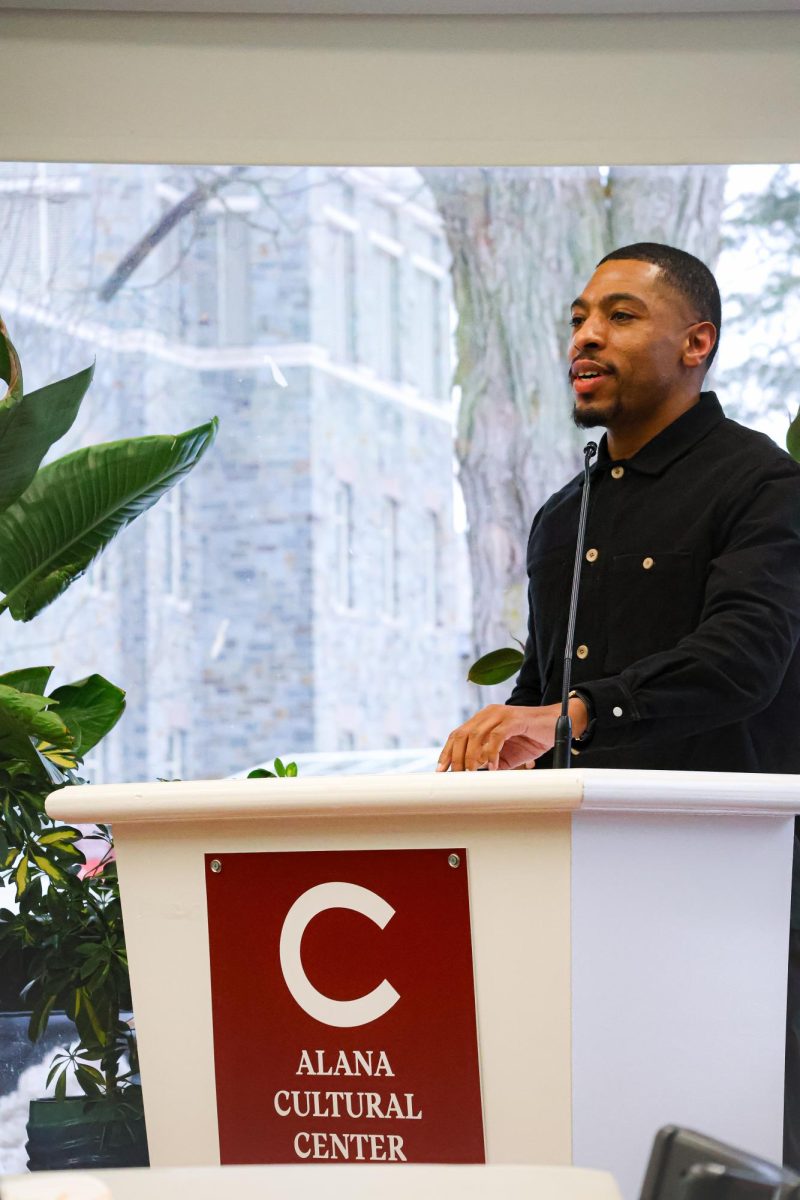International students traveling outside of the United States with Colgate University groups have been advised that potential restrictions spurred by the Trump administration might complicate their trips in the coming months.
Two students traveling with Colgate’s Model United Nations (MUN) club — senior Yitian Liu, who is from Beijing, and first-year Yaroslav Spytskyi, who is from Ukraine — were told on Feb. 5 by the Office of Student Involvement (OSI) that they would be unable to attend two trips in February and March based on guidance from the University. Initially, both were booked to attend a global MUN conference in Nuremberg, Germany.
“I got an email from the Office of Student Involvement saying that Colgate has advised all international students to refrain from traveling abroad in the coming months,” Spytskyi said. “Because of that, I could not travel to Germany with the MUN club.”
After the two international students were told that they would not be able to travel, Liu — who was also planning on attending a conference in the Philippines in March — decided to email University officials and the Office of International Student Services (OISS) hoping to have the policy reversed. Eventually, the issue was brought up for discussion at a University cabinet meeting. Liu and Spytskyi then received a follow-up email Feb. 10 from OSI that the University would now offer them the choice to travel at their own risk.
“We received an email saying that we can go on the trip but we need to acknowledge the risks and understand that Colgate cannot be held responsible for any issues including detainment or denial of entry back to the U.S.,” Spytskyi said. “After all this, I still decided to travel with MUN club.”
When contacted by the Maroon-News, the Office of International Student Services chose not to comment as of Feb. 14.
Another concern among international students is the broader impact of these policy changes beyond travel restrictions.
“Even if someone isn’t directly affected right now, there’s always the stress of not knowing if a future policy change could suddenly disrupt their plans. It also makes it harder for international students to fully take advantage of academic and professional opportunities. A lot of students want to do research abroad, internships or study programs in other countries, but travel uncertainty can make them hesitant to commit,” Liu said.
“The current uncertainty regarding immigration policies makes me worry because no one knows exactly what might be banned next,” Spytski said. “Colgate is saying to international students to travel at their own risk without expecting much help from Colgate in case of some unexpected issues at the border. I do understand that [the] Colgate administration has no control over the border policy of this country. I wish Colgate was better at communicating with the international students. I feel like so far their statements caused more panic than actual help.”
Liu echoed Spytskyi’s concerns. While he appreciated Colgate’s willingness to listen and reconsider decisions, he still found the communication between different offices to be confusing.
“I think Colgate genuinely cares about its international students and does try to support us. In my case, my concerns were taken seriously, and leadership actually discussed the issue at the cabinet level, which I really appreciate,” Liu said. “That said, the lack of a clear, standardized process across different offices can make things confusing when unexpected issues come up. Since so many of these policy changes are happening at the federal level, the response from universities often feels more reactive than proactive — which isn’t really their fault, but it does create uncertainty.”














